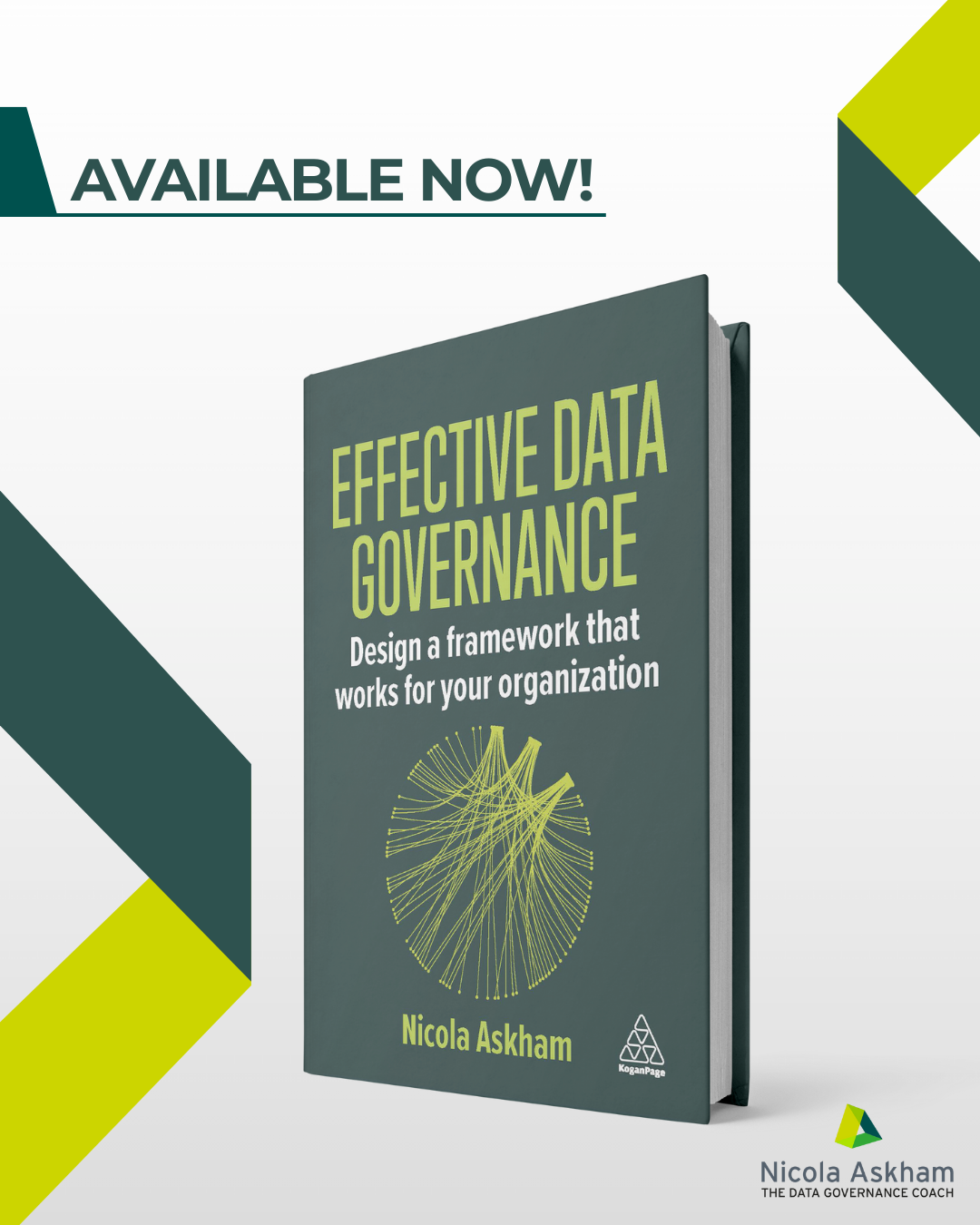Where Data Governance Meets AI Governance
/The integration of Artificial Intelligence into business operations has created a data governance challenge that many organisations are grappling with. While AI promises transformative capabilities, its success fundamentally depends on the quality of data governance already in place. Understanding where data governance ends and AI governance begins isn't just an academic exercise; it's essential for any organisation deploying AI responsibly.
The Data Foundation Challenge
AI systems are only as reliable as the data they consume. I've watched organisations rush to implement AI solutions, only to discover their foundational data governance wasn't fit for purpose. Poor data quality doesn't just limit AI effectiveness; it actively amplifies existing problems. Biased data creates biased algorithms. Inconsistent data produces unreliable predictions. Incorrect data leads to flawed decision making at machine speed.
This is where data governance proves its worth. Before any AI initiative launches, organisations need robust processes ensuring data understanding (definitions to confirm that is what we think it is) data accuracy, completeness, and appropriate data lineage tracking. Without these fundamentals, AI becomes a sophisticated mechanism for scaling your data problems rather than solving your business challenges.
The Accountability Gap
Traditional data governance establishes clear ownership and accountability for data assets. AI introduces a new complexity: who owns the outputs and decisions generated by AI systems? When an algorithm makes a recommendation or decision, accountability becomes diffused across data scientists, business owners, IT teams, and the AI model itself.
AI governance must address this accountability gap explicitly. It requires a clear framework defining responsibility for AI model development, deployment, monitoring, and outcomes. However, this accountability chain starts with data governance. If you don't know who's responsible for the quality of input data, determining accountability for AI outputs becomes impossible.
Bias: Where Data Quality Meets Ethics
Bias represents perhaps the most obvious intersection between data and AI governance. Historical data often reflects past prejudices and systemic inequalities. When AI learns from this data, it doesn't just replicate these biases; it can encode them into automated decision making at scale.
Data governance provides the first line of defence through data quality assessments and metadata management that flags potential bias in source data. AI governance then extends this protection by establishing testing protocols, fairness metrics, and ongoing monitoring of AI system outputs. Neither discipline alone adequately addresses bias; they must work together.
The Speed Problem
AI development moves faster than traditional data governance frameworks were designed to handle. New models, techniques, and applications emerge continuously, often outpacing policy development. This creates genuine tension: overly rigid data governance stifles innovation, while insufficient oversight creates unacceptable risk.
The solution lies in governance frameworks designed for agility. Data governance principles remain relatively stable: data must be accurate, and understood regardless of how it's used. AI governance needs more flexibility, with risk based approaches that adjust oversight intensity based on the AI application's potential impact. High risk applications like credit decisioning or medical diagnosis require more rigorous governance than low risk applications like content recommendations.
Drawing the Boundary Line
So where does data governance end and AI governance begin? Data governance focuses on the "what": what data exists, what quality standards apply, and what compliance requirements must be met. It establishes the foundation.
AI governance addresses the "how": how AI systems are developed, how models are trained and validated, how algorithmic decisions are made transparent, and how AI risks are identified and mitigated. It builds upon that foundation.
However, this boundary isn't rigid. Both disciplines share common principles: transparency, accountability, ethical use, and risk management. The most effective approach integrates them into a cohesive governance framework rather than treating them as separate initiatives.
Practical Implementation
I hosted an event recently with this topic as the theme for the day. Based the workshop outputs and many conversations with Data Governance Managers facing this challenge, it seem that the follow approach help drive success:
Start with data governance fundamentals. Don't deploy AI until basic data quality, lineage, and ownership are established. AI won't fix broken data governance; it will expose and magnify those weaknesses.
Create cross functional governance structures. Data governance teams need AI expertise; AI development teams need data governance representation. Silos between these functions create blind spots and inefficiencies.
Implement proportionate oversight. Not every AI application requires the same governance rigour. Develop risk tiering frameworks that match oversight intensity to potential impact.
Build iteratively. Don't wait for perfect governance before deploying AI. Start with pilot projects under enhanced oversight, learn quickly, and evolve your frameworks based on real experience.
Invest in capability building. Your staff need to understand both data governance principles and AI fundamentals. This dual literacy is essential for effective oversight and responsible innovation.
The Path Forward
The organisations succeeding with AI aren't necessarily those with the most sophisticated technology; they're those with mature data governance foundations and thoughtfully designed AI governance extensions. This isn't about choosing between innovation and control; it's about creating frameworks that enable responsible innovation at scale.
If you're wrestling with these challenges and want to explore them further with peers and practitioners, I'll be speaking at IRM UK's Data Governance & AI Governance Conference. It's an excellent opportunity to dive deeper into practical approaches for integrating data and AI governance, and I'd love to see you there.
The journey requires commitment, collaboration, and continuous adaptation. But the alternative, deploying AI without adequate governance, creates risks no organisation can afford.




















